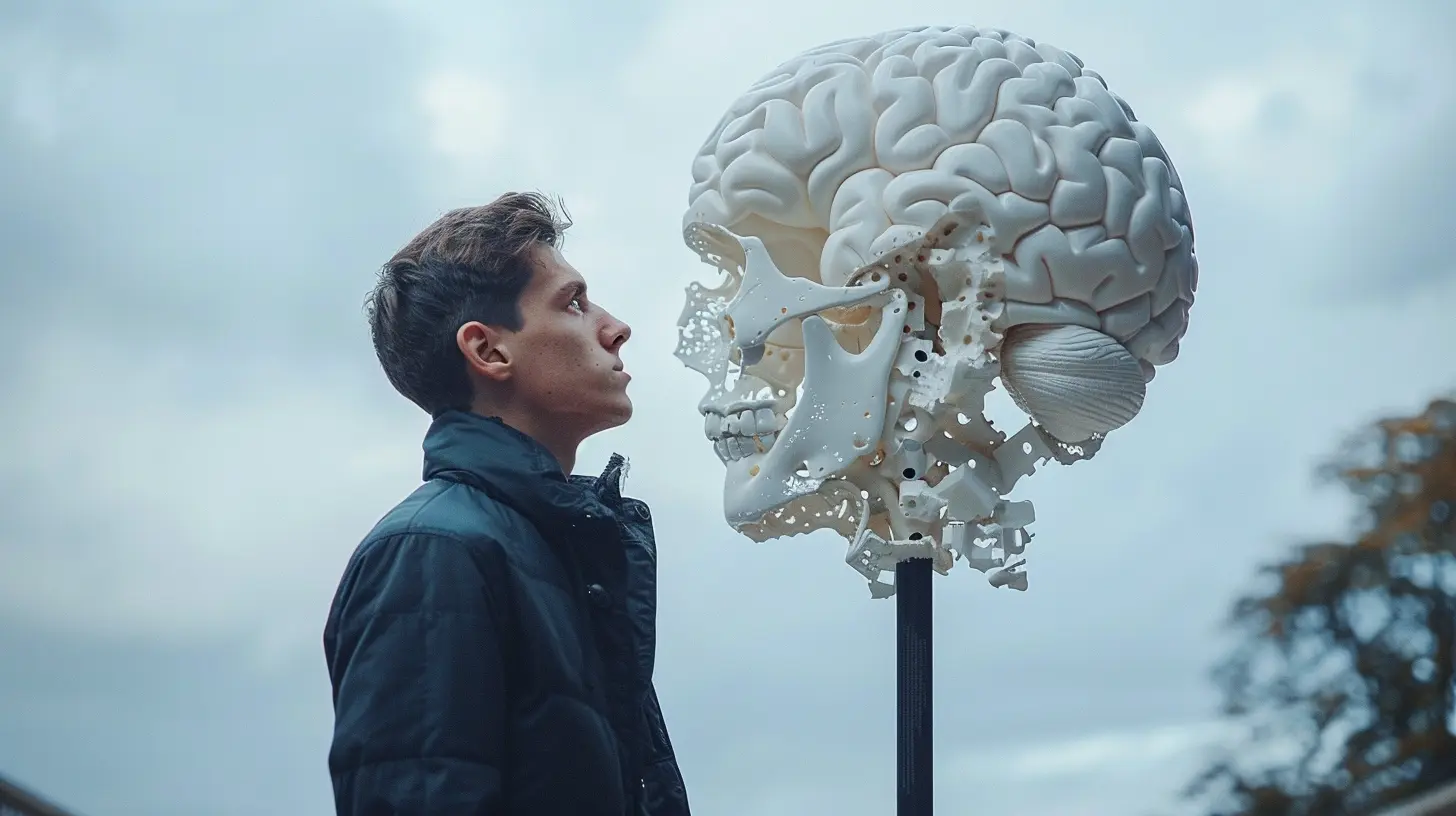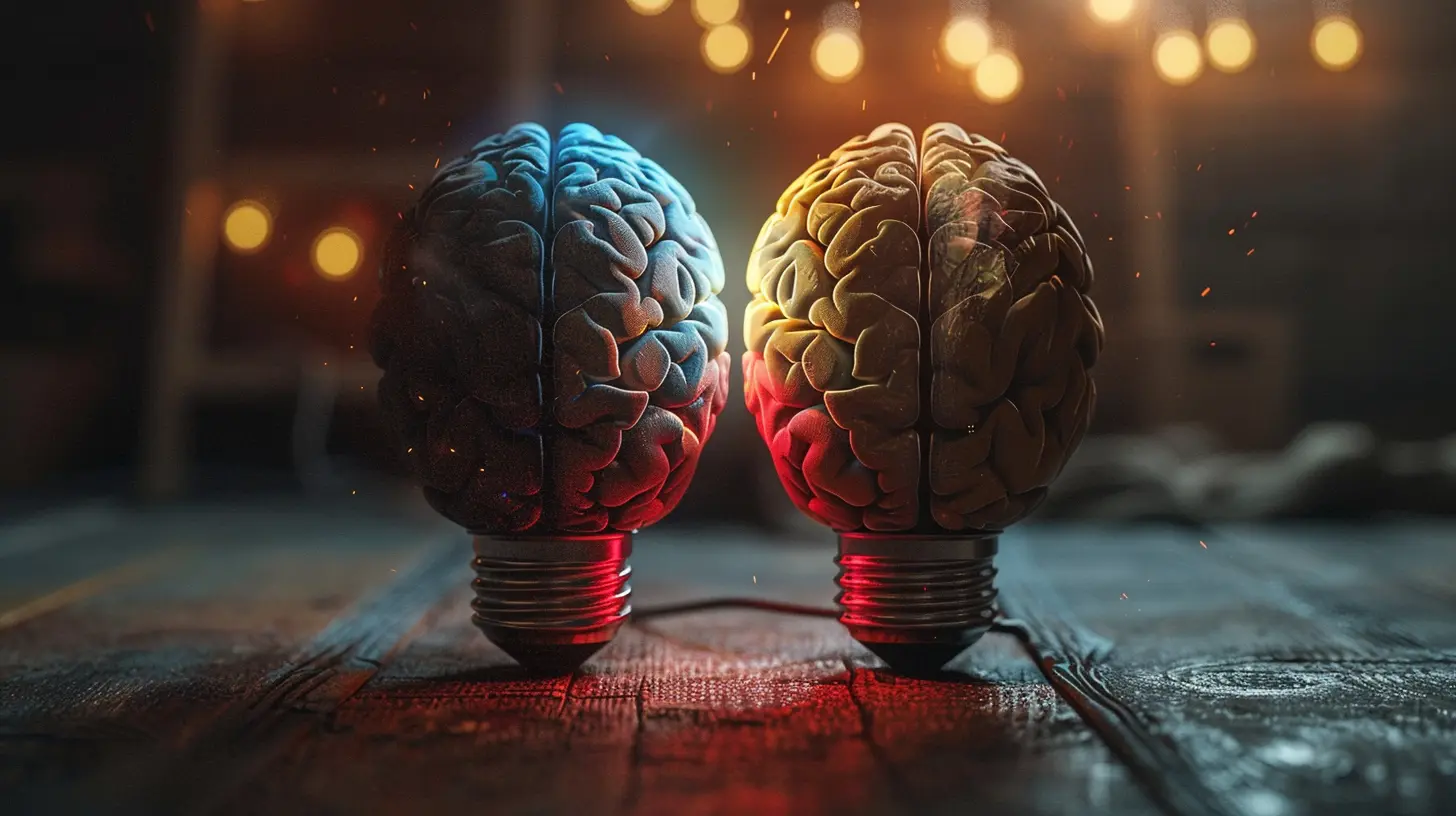The Science of Persuasion: How We Make Decisions
3 December 2024
Ever wondered why you bought that one extra item at checkout or why you said yes to that invitation when you were leaning towards no? Every single day, we’re faced with a flood of decisions, some big and life-changing, others seemingly trivial. Yet, behind each decision, there’s often more going on than we realize. The science of persuasion plays a huge role in how we make choices, and understanding it can help us become more conscious of our decisions.
In this article, we’ll dive deep into the fascinating world of persuasion, exploring how psychology influences our decision-making. We’ll break down the science behind it, uncover the key principles that shape our choices, and look at some practical examples of how persuasion impacts our daily lives.

What is Persuasion?
Before we get into the meat of things, let’s clarify what we mean by "persuasion." At its core, persuasion is the process of influencing someone’s beliefs, attitudes, or behaviors. It’s not about manipulation—persuasion is more subtle. It’s the gentle nudge that steers us towards one option over another.Think about the last time you were convinced to try something new. Did a friend recommend a restaurant? Did a catchy advertisement make you reconsider a purchase? These are all forms of persuasion at play. The goal is to influence someone’s decision in a way that feels natural, not forced.

The Psychology of Decision-Making
Before we explore how persuasion works, we need to understand how we make decisions. Psychologists have studied decision-making for decades, and one thing is clear: we don’t always make choices based purely on logic. Our brains are wired to take shortcuts, often relying on emotions, biases, and past experiences.System 1 vs. System 2
There’s a popular model in psychology, developed by Daniel Kahneman, that divides our thinking into two systems:- System 1: This is our fast, automatic, and intuitive thinking. It's the gut feeling you get when you meet someone for the first time or the instinctive reaction you have when driving a familiar route.
- System 2: This is slower, more deliberate, and logical. It’s the kind of thinking you use when solving a math problem or making a pros-and-cons list.
When it comes to persuasion, most of the techniques are aimed at System 1 because it’s faster and easier to influence. We don’t always have the time or energy to engage System 2, so we rely on mental shortcuts, or heuristics, to get us through the day.
Heuristics: Mental Shortcuts
Heuristics are like the cheat codes of decision-making. They’re quick, rule-of-thumb strategies that help us make decisions without overthinking.Here are a few examples:
- The Availability Heuristic: If something comes to mind quickly, we assume it’s more common or likely. For instance, after hearing about a plane crash on the news, you might overestimate the risk of flying.
- The Anchoring Effect: We tend to rely too heavily on the first piece of information we receive. If a product is first shown at $100, and then "discounted" to $50, we feel like we’re getting a great deal, even if the original price was inflated.
- The Bandwagon Effect: We’re more likely to do something if we think others are doing it too. This is why popular trends or viral challenges catch on so quickly.
These shortcuts help us make decisions faster, but they also make us susceptible to persuasion techniques.

The Six Principles of Persuasion
In his groundbreaking book, Influence: The Psychology of Persuasion, Dr. Robert Cialdini outlined six principles that explain how and why people say "yes." These principles are used by marketers, politicians, leaders, and even your friends to influence your decisions. Let’s break them down:1. Reciprocity
You know that feeling when someone does something nice for you, and you feel obligated to return the favor? That’s reciprocity in action. Humans are hardwired to reciprocate kindness—it’s part of what makes us social creatures. Marketers use this to their advantage by offering free samples or discounts, knowing that you’ll feel more inclined to buy after receiving something for free.2. Scarcity
There’s something about knowing that an item is limited or that time is running out that makes us want it more. Whether it’s a "limited-time offer" or "only 3 left in stock," scarcity creates urgency and pushes us to make faster decisions. It taps into our fear of missing out (FOMO).3. Authority
We tend to trust and follow the advice of experts or people in positions of power. This is why you often see celebrities or professionals endorsing products. If a doctor recommends a particular brand of medicine, or a celebrity chef endorses a kitchen gadget, we’re more likely to trust their judgment.4. Consistency
People like to remain consistent with their past behavior. If you’ve publicly committed to a cause or idea, you’re more likely to stick with it. This is why small commitments can lead to bigger ones. For instance, if you agree to sign a petition, you’re more likely to later donate to the cause. Once we’ve made a decision, we want to stay true to it to avoid cognitive dissonance.5. Liking
It’s simple: we’re more likely to be persuaded by people we like. If we feel a connection or similarity with someone, their opinions hold more weight. This is why salespeople often try to find common ground or build rapport—they know that if you like them, you’re more likely to say yes.6. Social Proof
Humans are social creatures, and we often look to others when making decisions. If we see that a product has hundreds of positive reviews or that a restaurant is always crowded, we’re more likely to believe it’s good. Social proof reinforces our choices by showing us that others have made the same decision.
The Role of Emotions in Persuasion
It’s not just logic and shortcuts that shape our decisions—our emotions play a significant role too. In fact, research shows that emotional appeals are often more persuasive than facts or data.Fear, Joy, and Everything In Between
Advertisers and politicians know this all too well. Fear is a powerful motivator, pushing us to act quickly to avoid danger. On the flip side, joy and positive emotions can also drive decisions. Think about those heartwarming commercials that make you feel good about a brand. Emotions can bypass our logical thinking and tap directly into our decision-making process.The Power of Storytelling
One of the most effective ways to evoke emotion is through storytelling. Stories resonate with us on a deep level, allowing us to relate to the characters and their experiences. Brands use stories to create an emotional connection, whether it’s through customer testimonials or narratives that highlight the brand’s values. When we feel emotionally connected to a story, we’re more likely to be persuaded by it.Ethical Persuasion vs. Manipulation
Now, it’s important to acknowledge the fine line between persuasion and manipulation. While persuasion is about influencing decisions in an ethical and respectful way, manipulation involves deceiving or coercing someone into making a choice that may not be in their best interest.An ethical persuader respects the autonomy of the person they’re trying to influence. They present clear information, are transparent about their intentions, and allow the other person to make an informed decision. In contrast, manipulators use deception, pressure, or exploitation to achieve their goals.
It’s crucial to be aware of the techniques being used on us, so we can make conscious, thoughtful decisions rather than being swayed by subtle manipulation.
Practical Applications of Persuasion
You might be wondering, “How does all of this apply to my everyday life?” The truth is, persuasion is everywhere. Whether you’re at work, shopping online, or scrolling through social media, you’re constantly exposed to persuasive techniques.Here are a few examples:
- In Marketing: Companies use scarcity, social proof, and authority to persuade you to buy their products. Ever noticed how e-commerce websites show you how many people are viewing the same item or how many are left in stock? That’s scarcity and social proof in action.
- In Negotiations: If you’re trying to negotiate a raise or close a deal, understanding the principles of persuasion can help you present your case more effectively. By building rapport (liking), offering something in return (reciprocity), and demonstrating your expertise (authority), you can increase your chances of success.
- In Relationships: We all use persuasion in our personal lives, whether we realize it or not. From convincing friends to join us for dinner to influencing our partners’ decisions, the psychology of persuasion is at play in our everyday interactions.
How to Make Informed Decisions
Now that you’re aware of the forces at play, how can you ensure that you’re making informed decisions rather than being swayed by subtle persuasion?Here are a few tips:
1. Pause Before Deciding: Give yourself time to engage System 2 thinking. Don’t let urgency or scarcity pressure you into making a hasty decision.
2. Be Aware of Emotional Appeals: Ask yourself if you’re being influenced by emotion rather than logic. Are you making a decision based on fear, joy, or another emotion?
3. Look for Transparency: Ethical persuasion is transparent. If you feel like someone is hiding something or being deceptive, it’s a red flag.
Conclusion
Understanding the science of persuasion gives us insight into how we make decisions and why we’re often swayed by certain techniques. From mental shortcuts to emotional appeals, there are countless factors influencing our choices. By learning about these principles, we can become more conscious consumers, better negotiators, and more thoughtful decision-makers.The next time you find yourself faced with a choice, take a moment to reflect. Are you being persuaded? Or are you making a decision based on your true preferences and values?
all images in this post were generated using AI tools
Category:
Psychological ResearchAuthor:

Nina Reilly
Discussion
rate this article
15 comments
Octavia Hall
Ah, the science of persuasion—because who doesn’t love a good mind game? It’s like a masterclass in manipulation wrapped in a cozy blanket of psychology. Remember, folks: every decision we make is just another opportunity to outsmart ourselves. So, who’s really pulling the strings here?
February 9, 2025 at 4:41 PM

Nina Reilly
Great observations! Persuasion is indeed a complex interplay of psychology and strategy. Recognizing these dynamics can empower us to make more informed decisions.
Maren McMaster
Understanding persuasion enriches our decision-making.
February 1, 2025 at 3:15 PM

Nina Reilly
Thank you! Indeed, grasping the principles of persuasion enhances our ability to make informed and thoughtful decisions.
Alice Adams
This article insightfully explores the psychology behind decision-making, highlighting key persuasive techniques that influence our choices every day. Great read!
January 25, 2025 at 4:36 AM

Nina Reilly
Thank you for your kind words! I'm glad you found the article insightful. Your feedback is much appreciated!
Sydney Navarro
Understanding the psychology behind persuasion empowers us to make informed decisions, fostering awareness of external influences on our choices.
January 21, 2025 at 5:43 PM

Nina Reilly
Absolutely! Understanding persuasion helps us navigate influences and make smarter choices. It's crucial for informed decision-making.
Shiloh McGonagle
Fascinating insights! How do social influences shape our decision-making beyond individual psychology?
January 17, 2025 at 4:12 AM

Nina Reilly
Thank you! Social influences, such as group dynamics, cultural norms, and peer pressure, significantly shape our decision-making by altering our perceptions and priorities, often leading us to align our choices with those of others rather than relying solely on personal beliefs.
Teagan McMichael
In a world where choices abound, what unseen forces shape our decisions? Delve into the shadows of persuasion and discover the secrets lurking within.
January 11, 2025 at 3:48 PM

Nina Reilly
Thank you for your insightful comment! Indeed, understanding the subtle influences of social norms, emotions, and cognitive biases can illuminate the often hidden mechanisms that guide our decision-making processes.
Fable McNeal
This article compellingly outlines the psychological mechanisms behind decision-making and persuasion. By integrating cognitive biases and social influences, it highlights how our choices are often less rational than we believe, revealing important implications for everyday interactions.
January 5, 2025 at 5:52 PM

Nina Reilly
Thank you for your insightful comment! I'm glad you found the article illuminating regarding the complexities of decision-making and persuasion. Your engagement with the content is much appreciated!
Ashley McCoy
Ah, the science of persuasion! It’s like a mind game where the players are clueless, and the rules are written in invisible ink. Spoiler alert: we’re all just one catchy slogan away from a life-changing decision. Who's ready to be influenced, darlings?
January 2, 2025 at 3:17 AM

Nina Reilly
Absolutely! Persuasion is a powerful tool, often operating beneath our conscious awareness. It's fascinating how a simple phrase can shape our choices and perspectives. Ready to explore its nuances?
Kairoth Evans
Great article! Your insights into the science of persuasion really highlight the intricate ways our decisions are shaped. It's empowering to understand these mechanisms, as it can help us make more informed choices in our daily lives.
December 27, 2024 at 4:45 AM

Nina Reilly
Thank you for your kind words! I'm glad you found the insights empowering and helpful for decision-making.
Lorna McCall
This article brilliantly elucidates the intricate psychology behind decision-making and persuasion. By exploring cognitive biases and emotional influences, it sheds light on how our choices are often shaped subconsciously. Understanding these mechanisms not only enhances personal awareness but also improves our ability to communicate effectively and ethically with others.
December 23, 2024 at 4:35 AM

Nina Reilly
Thank you for your insightful comment! I'm glad you found the exploration of decision-making psychology and its impact on communication valuable.
Juniper Cantu
I loved this article! It's fascinating how our decisions are influenced by psychological principles without us even realizing it. Understanding the science of persuasion can really empower us in everyday life, from personal choices to professional interactions. Thanks for breaking it down so clearly!
December 18, 2024 at 4:07 PM

Nina Reilly
Thank you! I’m glad you found it insightful. Understanding these principles can truly enhance our decision-making abilities!
Phoebe Mercado
Understanding persuasion transforms decision-making strategies.
December 14, 2024 at 5:55 AM

Nina Reilly
Thank you! Understanding persuasion truly enhances our decision-making by providing insight into the underlying motivations and influences that shape our choices.
Caroline McClendon
This article effectively highlights the cognitive biases that shape our decision-making processes. By understanding the principles of persuasion, we can better navigate influences in our lives, ultimately fostering more informed and rational choices.
December 6, 2024 at 3:41 AM

Nina Reilly
Thank you for your insightful comment! I'm glad you found the article valuable in understanding cognitive biases and their impact on decision-making.
Serenity McCoy
Ever tried convincing a cat to take a bath? If only persuasion worked as easily in real life—science needs a feline focus group!
December 5, 2024 at 3:45 AM

Nina Reilly
Great point! Cats certainly have a mind of their own, highlighting the complexities of persuasion. Perhaps they truly are the ultimate test case!
Amber Ford
Fascinating insights! Decisions are truly delightful puzzles!
December 3, 2024 at 5:20 PM

Nina Reilly
Thank you! I'm glad you found it fascinating. Decisions really do offer intriguing challenges!
MORE POSTS

Empowering Your Self-Esteem: Building Confidence from Within

How Fear Influences Our Social Interactions

How to Use Positive Psychology to Foster a Strong Sense of Belonging

How Trauma-Informed Therapy Helps Treat PTSD

Cognitive Dissonance Explained: Why We Struggle with Conflicting Beliefs

ADHD in Adults: More Common Than You Think

How to Cultivate Self-Awareness in Your Daily Life

How to Build Emotional Resilience Using Positive Psychology Tools

The Impact of Bullying on Teenage Mental Health

The Role of Self-Compassion in Achieving Work-Life Balance